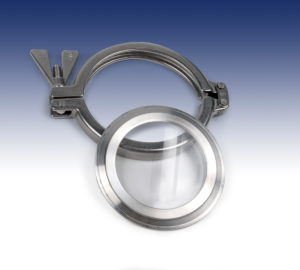Two finalists were announced for the inaugural LEAP Awards’ Advanced Materials Category, comprising an intriguing array of new materials advances. The competition was scored by a panel of independent technical/engineering-oriented judges. Responsible for the Advanced Materials category were these 3 judges:
 Plamen Doynov, Research Professor, University of Missouri-Kansas City
Plamen Doynov, Research Professor, University of Missouri-Kansas City
Plamen Doynov became a research professor in physics last year, after a long and storied career that included stints as the Principal Engineer at MRIGlobal, a Biomedical Engineer at Flint Hill Scientific, and VP of Electrical Engineering at Aviation Simulation. He holds a PhD in Electrical Engineering and Computer Sciences from the University of Missouri-Kansas City and a Master’s in Electrical Engineering from The Catholic University of America.
Doynov has been active in and a local board member of the IEEE and has won numerous honors and awards from the MRIGlobal Council of Principal Sciences, Boeing and the Bulgarian Society for Biochemistry and Biophysics. He has experience in electronics, electrical and biomedical engineering, as well as research and development of specialized scientific systems.
 Bradford L. Goldense, President, Goldense Group Inc.
Bradford L. Goldense, President, Goldense Group Inc.
Bradford L. Goldense is a subject matter expert in the management and processes of product development, innovation and performance measurement. He has authored or been cited in more than 300 articles and books and holds nearly 150 registered copyrights.
Goldense was a faculty member of the Graduate Engineering School Executive Program at The Gordon Institute of Tufts University for 19 years. He is internationally recognized and has consulted with more than 200 of the Fortune 1000 in 500 manufacturing locations around the world. GGI has helped many companies to increase their stock price by improving R&D innovation and execution, and by improving communications of prowess to the marketplace and investor community.
He previously held positions at Texas Instruments, Price Waterhouse, Knight & Associates, Index Group, and a family engineering business before founding GGI. Goldense has a BSCE from Brown University and an MBA from Cornell’s Johnson School. He holds four professional certifications: New Product Development Professional by the Product Development and Management Association, Certified Manufacturing Engineer by the Society of Manufacturing Engineers, Certified Computer Professional by the Institute for Certification of Computer Professionals and Certified in Production and Inventory Management by the American Production and Inventory Control Society.
Goldense was a founding member of the Society of Concurrent Engineering and founder of the Society of Concurrent Product Development which he ran until 2006. He retired from the board in 2012. His non-profit corporation lives on, with appreciated support and funding from 3M.
 Russ Hempstead, Senior Development Engineer, Just Right Surgical
Russ Hempstead, Senior Development Engineer, Just Right Surgical
Russ Hempstead has been working in the medical device industry for more than 25 years. He has focused on early stage design and development through manufacturing of class II medical devices. Biomedical engineering was an obscure specialty when he attended college, so he pursued his degree in mechanical engineering with an emphasis in polymer science.
Hempstead has extensive experience in clinical settings for the purposes of early concept generation, as well as product launch. Clinical settings include animal and cadaver labs for product validation activities and hospital operating rooms for procedure familiarization and observation. He has led engineering teams in various facets of device development and manufacturing for the last 13 years. In all of those instances, he was an individual contributor in addition to the project manager. Hempstead has been considered a subject matter expert in the areas of plastic material selection for biocompatibility and sterilization, design for injection molding, design for manufacturability, and finite element analysis.
Below are descriptions of the two Advanced Materials finalists. The overall winner of the Advanced Materials category will be announced at an awards dinner on December 11th in Costa Mesa, Calif.
Dura-Bar
Solution Strengthened Ductile Iron
Solution Strengthened Ductile Iron (SSDI) is a new grade of ductile iron, recently added to Dura-Bar’s continuous cast iron bar stock offerings. SSDI has minimum tensile strength of 75,000 psi, a minimum yield strength of 55,000 psi and a minimum elongation of 15%. The new material boasts a tightened Brinell Hardness (BHN) across the material’s entirety due to improved microstructural variation from surface to center, as well as enhanced mechanical properties over other similar ductile irons.
SSDI is a metallurgical term that has been adopted by producers of ductile iron. Shortened from Silicon Solution Strengthened Ferritic Ductile Iron, this material meets the mechanical properties of Spheroidal Graphite Cast Iron – Classification ISO 1083 (GJS-500/10).
SSDI has a ferritic matrix with small amounts of pearlite. The microstructure is “forced” to be ferritic by the heavy addition of silicon (aka solution strengthening). It has a matrix structure and properties similar to several low-carbon grades. Preliminary results show that SSDI can be heat-treated, to a hardness Rockwell C 35-40.
One of the benefits of SSDI is the enhanced machinability due to the addition of silicon. Machining trials have yielded productivity increases of approximately 30% with no negative impact in tool wear. SSDI is an excellent alternative to 1045 steel and can be used in a range of fluid power and oil and gas applications.
The development of SSDI was primarily driven by customer applications requiring a consistent hardness range for improved machinability without a loss in strength.
SSDI exhibits improved machinability due to the added silicon, compounded by the inherent added benefit of less tool wear. This translates into higher machining productivity and utilization rates and ultimately, lower overall parts cost.
SSDI is an excellent alternative to 1045 steel due to its improved strength and ductility. Initial tests show the wear rate is approximately 30% lower than that of 1045 steel. Also, since it is produced in the US, SSDI is not subject to the volatility of the steel market.
L.J. Star
MetaPlex
The MetaPlex material offers a safe and dependable alternative for Food and Beverage Processing plants that do not need safety glass. MetaPlex is a high-quality product for users looking for an alternative to glass.

L. J. Star Inc. had independent material compatibility testing performed on MetaPlex samples by the Pennsylvania State University, Penn State Erie, The Behrend College engineering department. MetaPlex samples were exposed to representative acids, alkalis (caustics) and alcohols that are used in the processing industries. Samples were exposed to a range of chemical concentrations at elevated temperatures. No visible changes were observed to the polymeric material during this testing. In addition, internal testing and field testing were conducted.
MetaPlex fulfills an unmet need in the marketplace by providing a level of safety and useful service life well beyond that provided by conventional plastic sight windows. Patent-pending MetaPlex windows are formed by injecting the polymer into a precisely formed metal ring, which eliminates the dangerous weak point of the thin section of a conventional all-plastic sanitary window.
Designed with a proprietary interlocking seal against the clear polymer, MetaPlex ensures that the process media only comes into contact with a single material, which is vital in sanitary service. The metal ring supports the stress of clamp assembly and disassembly, reducing the risk of chipping and cracking. The result is an innovative, uniform combination of a polymer and metal that provides excellent optical characteristics with greatly enhanced mechanical strength. It is the only plastic sight glass on the market that offers CIP and SIP capability.
MetaPlex is stronger than competitor units that are all-acrylic or polycarbonate and aren’t durable enough to withstand the demands of the plant. This sanitary plastic window withstands temperatures up to 134° C, operating temperatures to 100° C and operating pressures up to 150 PSIG. Unlike other sight windows, MetaPlex offers simple and fast installation because of its sleek, compact one-piece design. In addition, there is no risk of glass fragments infiltrating the process media.
Filed Under: Awards • acquisitions




